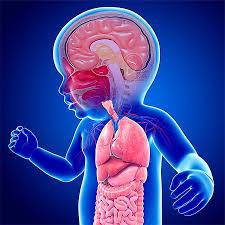Women’s Health Characterising novel targets for the treatment of endometriosis Suitability: Honours, Masters Location: The Ritchie Centre, Hudson Institute of Medical Research; Level 5, Translational Research Facility, Monash Medical Centre, Clayton Project Leaders: Dr Fiona Cousins, Prof Caroline Gargett Email: fiona.cousins@hudson.org.au Project description: Endometriosis is a chronic disorder that has a major impact on quality of life. Despite its high prevalence, there is a lack of understanding of its pathogenesis, there is no cure, and current treatment options are limited to medicines with side effects or invasive surgery. We are aiming to develop new therapeutic strategies that focus on the immune system and not a woman’s menstrual cycle, like most current treatments. Interferons are a family of cytokines that have antipathogen and anti-tumour actions. They work by controlling cell growth, survival, migration and activation in immune cells that cause inflammation. Interferon epsilon (IFNε) is a novel cytokine and immunomodulator that is constitutively expressed and only in the female reproductive tract (FRT) epithelium. IFNε exerts its protective effects in the FRT to prevent bacterial/viral infections and cancers. IFNε exerts a protective effect against the development of ovarian cancer in pre-clinical mouse models and can also reduce cancer metastases when given as a therapeutic in these mice. Given the similarities between ovarian cancer and endometriosis; increased cell growth and adaptation to an inflamed environment, we are interested to see whether IFNε may play a role in endometriosis pathogenesis and whether it can be used as a new therapeutic for the disease. Keywords: endometriosis; immune system; immunomodulation; endometrium; women's health; disease;
A novel non-invasive diagnostic for endometriosis/adenomyosis Suitability: PhD/Honours/Masters Location: The Ritchie Centre, Hudson Institute of Medical Research; Level 5, Translational Research Facility, Monash Medical Centre, Clayton Project Leader: Prof Caroline Gargett Email: caroline.gargett@hudson.org.au
causing pain, disease and infertility. Adenomyosis is a related condition where lesions form within the myometrial layer of the uterus. This project will build upon our novel findings that menstrual fluid may serve as a novel non-invasive diagnostic for endometriosis and adenomyosis. The project involves quantitation and functional characterisation of endometrial stem/progenitor cells and plasma proteins. Techniques include tissue culture, flow cytometry, ELISA, and immunofluorescence. Techniques employed can be tailored to suit the interests of the student. This project has international funding Keywords: Endometriosis, flow cytometry, stem cells, diagnostics\
Vaginal Stem Cells: the missing link to vaginal reconstruction Suitability: Masters/Honours/BMedSc (Hons) Location: The Ritchie Centre, Hudson Institute of Medical Research; Level 5, Translational Research Facility, Monash Medical Centre, Clayton Project Leaders: Prof Caroline Gargett. Dr Shanti Gurung Email: caroline.gargett@hudson.org.au Project description: The vagina is central to a woman’s sexuality, her sexual health, body image and sense of wellbeing. Vaginal epithelial stem cells and mesenchymal stem cells are likely responsible for maintaining vaginal tissue and could be harnessed for use as cell therapies for women who have lost a significant proportion of their vagina due to cancer, radiation treatment or chemotherapy. This project will identify these stem cell populations in human vagina using in vitro stem cell assays: clonogenicity, self-renewal and differentiation into 3D organoids. Techniques include primary tissue culture, FACS, immunofluorescence. Keywords: Vagina, human, epithelial stem cells, mesenchymal stem cells, organoids, flow cytometry
Project description: Women with endometriosis and adenomyosis suffer for up to 10 years in pain before a diagnosis is made. This is in part due to lack of a noninvasive diagnostic test. Endometriosis affects 10% of girls and women and is characterised by lesions of endometrial tissue form throughout the pelvic cavity, The Ritchie Centre | Student Research Projects 2023
5








